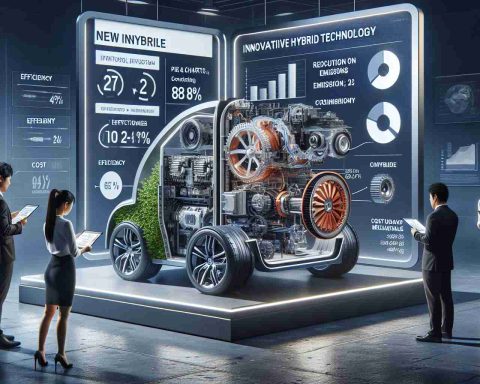In an unexpected turn of events, Foxconn, known for its electronics manufacturing, is reportedly negotiating with Renault, Nissan’s largest shareholder, about selling its shareholdings in the car manufacturer. This move comes as Nissan and Honda explore a potential merger, which could catapult them into direct competition with industry giant Toyota.
Foxconn’s interest in acquiring a stake in Nissan is now at center stage, especially as Nissan faces significant financial hurdles, including a forecasted profit decline and plans to cut 9,000 jobs globally. The stakes are high as Foxconn’s chief strategy officer has communicated their intent for investment, though Nissan has yet to respond favorably.
Reportedly, Foxconn has intensified dialogues with Renault in a bid to solidify this deal. These discussions are crucial since Renault’s stake dates back to their historical alliance with Nissan and Mitsubishi. Meanwhile, Honda has threatened to withdraw its strategic partnership with Nissan if the latter captures Foxconn’s attention, even offering a rescue option if needed.
Official talks regarding a merger between Honda and Nissan are slated to commence by December 23, a pivotal moment for both companies. This consolidation could provide the necessary resources to rival Tesla and formidable Chinese brands like BYD, especially in a transforming automotive landscape emphasizing advanced technology. The outcome of these negotiations could reshape the automotive industry in profound ways.
Foxconn Seeks to Reshape Automotive Landscape Through Strategic Moves with Nissan and Honda
Background
Foxconn, a global leader in electronics manufacturing, is making headlines with its negotiations to acquire stakes in Nissan. This development unfolds against the backdrop of Nissan facing notable financial challenges, including a forecasted profit decline and impending job cuts affecting around 9,000 employees across the globe.
Key Aspects of the Negotiation
– Foxconn’s Strategic Intent: The chief strategy officer of Foxconn has articulated a strong desire to invest in Nissan, signaling a potential shift in the automotive sector. This move aligns with increasing competition in the electric vehicle (EV) market as automakers adapt to technological changes and consumer demands.
– Renault’s Historical Stakes: Renault has held significant stakes in Nissan for years, stemming from their historical partnership with Nissan and Mitsubishi. Foxconn’s negotiations with Renault to facilitate a sale of these stakes could have far-reaching implications for both companies.
Implications of a Merger
– Nissan and Honda’s Potential Merger: Official discussions between Nissan and Honda regarding a merger are scheduled to begin by December 23. This collaboration aims to create a stronger competitor against automotive giants such as Toyota, Tesla, and emerging Chinese brands like BYD.
– Threats of Withdrawal: Honda, currently in a strategic partnership with Nissan, has indicated a willingness to withdraw if Nissan prioritizes a relationship with Foxconn. This adds urgency to the negotiations and highlights the fragility of current alliances in the automotive industry.
Current Trends and Market Insights
– Shifting Automotive Landscape: The automotive industry is undergoing a transformation, necessitating substantial resource allocation for R&D in electric vehicles and advanced technologies. Collaborations like the potential Nissan-Honda merger may streamline resources and foster innovation.
– Financial Pressures on Automakers: With various manufacturers grappling with profitability issues and a shrinking market, strategic alliances are becoming increasingly vital for survival. The ability to efficiently pool resources could determine which companies emerge as leaders in the EV market.
Innovations and Technology
– Focus on Electric Vehicles: Both Nissan and Honda are investing heavily in electric vehicle technology, but the resources gained through a merger or strategic alliance could amplify their capabilities and accelerate development timelines.
Risks and Limitations
– Execution Risks: Mergers and acquisitions come with execution risks, including potential cultural clashes and operational integration challenges. The success of these discussions will depend on strategic alignment and collaborative synergy between Nissan, Foxconn, and Honda.
– Market Reception: Consumer perception of these alliances will also play a role in their success. As companies pivot towards electric and autonomous vehicles, any misalignment in vision or brand identity could hinder market acceptance.
Predictions and Future Outlook
Looking ahead, the automotive industry is poised for significant transformation as traditional manufacturers and tech companies converge. Foxconn’s aggressive exploration of investments and partnerships may reshape the competitive landscape, particularly in the EV sector. Stakeholders will be watching closely as discussions unfold through the end of 2023 and into 2024.
For further insights into the evolving automotive landscape, visit Automotive News.









